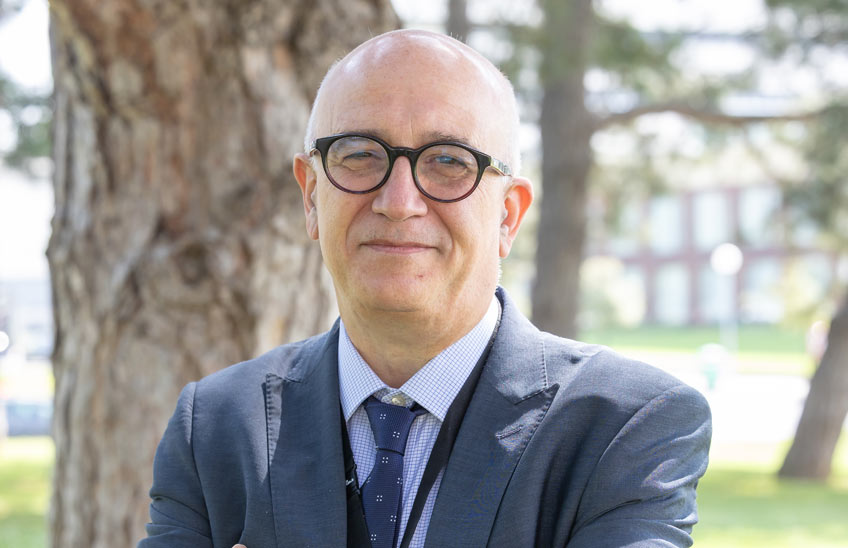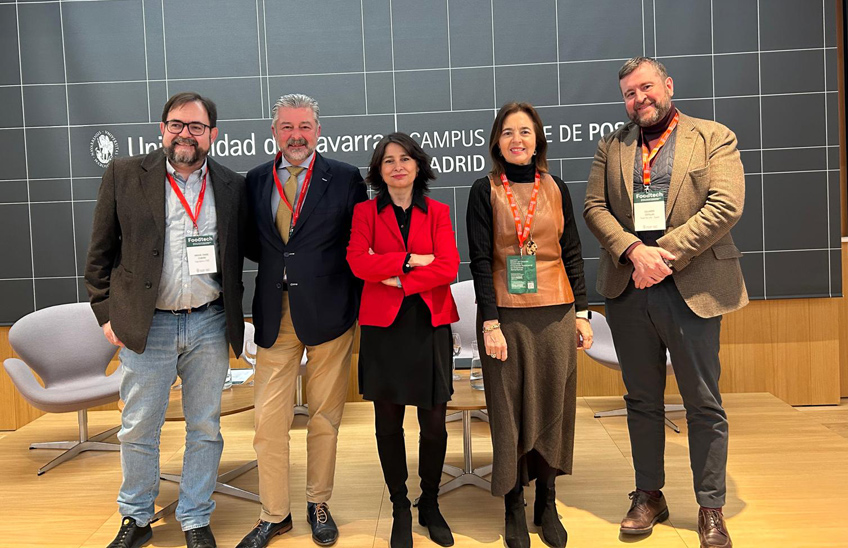The XXXV graduating class of MIDI and the XX graduating class of E-MENU from the School of Pharmacy and Nutrition graduated.
The postgraduate program in nutrition faces a new stage with an updated program that begins this academic year at the Madrid campus .

01 | 09 | 2025
The School of Pharmacy and Nutrition of the University of Navarra held last Friday at the Pamplona campus the graduation ceremony of the XXXV promotion of the UniversityMaster's Degree in research, development and Innovation of Medicines and the XX promotion of the European Master's Degree in Food, Nutrition and Metabolism.
During her speech, the dean María Javier Ramírez highlighted the educational role of the master's degrees and the social commitment of the new graduates. She recalled that every profession involves service to society and encouraged the new graduates to face the challenges of artificial intelligence, sustainability and entrepreneurship in the healthcare sector. "This is just the beginning of an exciting path full of possibilities. Wherever you are, your goal will always be to contribute to improving people's health and quality of life."
In addition, the dean confessed the special character of the event, coinciding with the last promotion of the European Master's Degree in Food, Nutrition and Metabolism. She stressed that the program "does not die, but is reborn", since all its experience has been the basis on which the new Master's Degree in Sustainable management and Nutritional Innovation in Food Companies has been designed, which this year begins to be taught at the Madrid campus .
A perspective that encourages innovation
On this occasion, the closing lecture was position by José Luis Cabero, consultant in innovation and technology transfer, former director of AstraZeneca and AELIX Therapeutics. Cabero stressed that working in biotechnology implies knowing how to manage in an environment of scarce resources that financial aid as an engine of ingenuity, motivation and creativity. Along these lines, he defended the contribution of the pharmaceutical industry to social welfare and insisted on the importance of maintaining an innovative perspective in the face of challenges, as has been demonstrated recently: "There is no medical-therapeutic intervention that has saved more lives than vaccines," he exemplified.
Cabero also encouraged graduates to adopt an innovative approach to professional challenges. He pointed out that, beyond thinking about whether "the glass is too small or too big," the essential thing is to change the perspective: "Many advances come from those who know how to look at the same thing as everyone else, but are able to think about it differently, an attitude that has proven to be core topic in the progress of many institutions.


